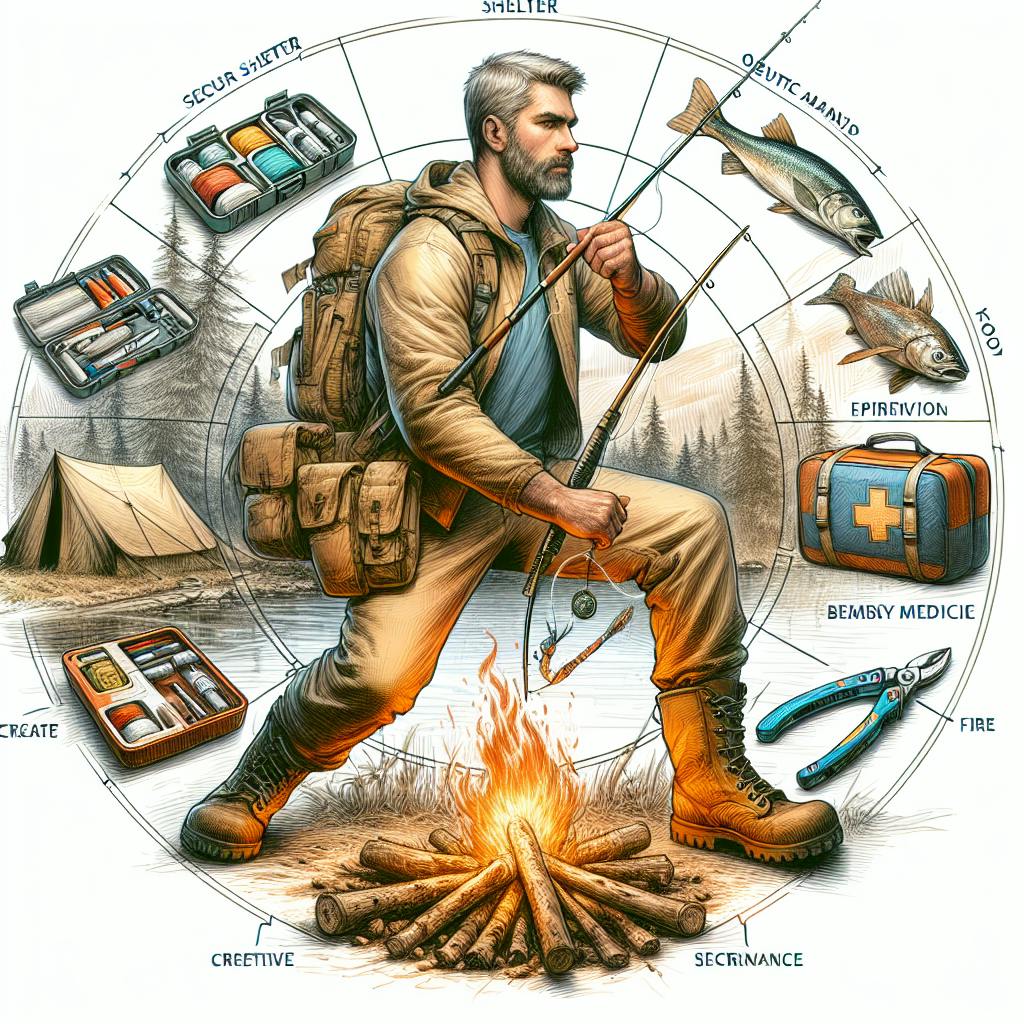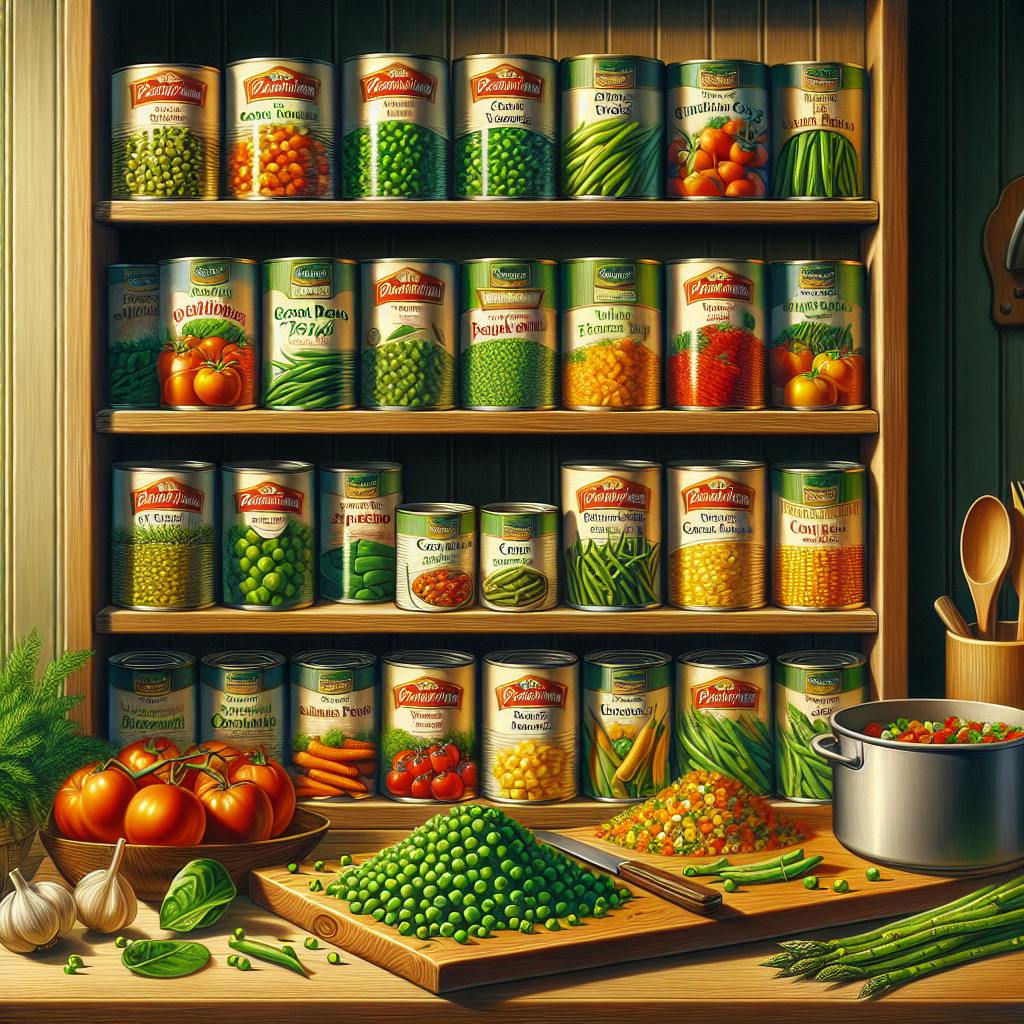Introduction
With increasing political tensions, climate change, and global instability, prepping - making active preparations for potential emergencies and disasters - has become a prudent safeguard practiced by many. While some dismiss prepping as an extreme overreaction, world events have made personal preparedness far less frivolous. In this comprehensive guide, we will examine the realities of prepping to determine if it is truly a useless endeavor or an invaluable insurance policy against the unexpected.
As experienced preppers and survival experts here at WeLovePrepping, we want to provide you with the most practical real-world advice on emergency preparedness. Throughout this article, we will define prepping, explore its key benefits as well as valid criticisms, offer tips for getting started, and share maintenance strategies to keep your preps current. We'll weigh the objective pros and cons to evaluate whether prepping is really useless or an essential component of responsible self-reliance.
What is Prepping?
Prepping refers to proactively preparing for potential emergencies or major disasters by stockpiling critical supplies and learning useful survival skills. The central goal is to achieve a reasonable level of self-sufficiency in case catastrophe disrupts normal societal infrastructure and services.
Common prepper supplies include food, water, first aid kits, fuel, lighting, tools, and other basics to sustain yourself and your family. Prepping activities range from taking wilderness survival or self-defense classes to mapping evacuation routes and establishing emergency communication plans.
While the term “prepper” sometimes evokes images of paranoid extremists building underground bunkers, many everyday people practice more reasonable, balanced preparedness. For most, prepping simply means having basic supplies and skills to handle short-term disruption - not necessarily the apocalypse.
Key Benefits of Prepping
Thoughtful prepping focused on fundamentals has many potential benefits:
-
Self-Reliance: Avoid dependency on government assistance or others by independently meeting basic survival needs. Even FEMA recommends at least 2 weeks of supplies.
-
Peace of Mind: Develop confidence in your ability to handle disasters despite uncertainty. Eliminate panic when catastrophe strikes.
-
Community Resilience: Share knowledge, resources, and skills to uplift your neighborhood when systems crumble.
-
Learn Useful Skills: Gain hands-on abilities via classes in wilderness survival, first aid, gardening, navigation and more. Apply knowledge in real scenarios.
-
Cost Savings: Gradually build stockpiles by dollar cost averaging over time. Buy in bulk during sales. Get free training through community emergency response groups.
Is Prepping Really Useless?
When we objectively weigh the pros and cons, prepping does require an ongoing time and financial commitment. Public stigma still exists toward stereotypical “doomsday preppers”. However, balanced preparedness integrated into normal life provides indispensable peace of mind. Let's analyze key factors to evaluate whether prepping is truly useless or a wise safeguard.
The Reality of Major Disasters
From climate change to global conflicts, systemic risks continue rising worldwide. Focused prepping grants self-reliance if public systems fail. FEMA estimates that after major disasters, federal relief may take 72 hours or longer to mobilize. Survival skills and supplies get families through until help arrives. In our interconnected world, even localized incidents can cascade into global turmoil through supply chain disruptions. Proactive preparedness is prudent insurance against this uncertainty.
Gaining Peace of Mind
Thoughtful prepping significantly boosts confidence in handling disasters when they inevitably occur. Having adequate supplies reduces panic and anxiety when catastrophe strikes. Hands-on skills training builds self-efficacy to overcome challenges through knowledge and experience. Rehearsing evacuation plans shifts thinking from reactive to proactive. Running practice drills for emergency scenarios alleviates stress and perceived helplessness.
Building Community Resilience
Adequate personal preparedness allows you to aid others when societal systems crumble. Forming local mutual assistance networks multiplies community readiness through cooperation. Knowledge sharing with neighbors improves disaster response at the grassroots level. This overcomes the stereotype of the lone “isolationist prepper” through collaboration. Preparedness promotes proactive volunteerism, leadership, and civic responsibility.
Addressing Criticisms
Admittedly, prepping can become excessive without a balanced approach. It demands substantial time and money. Public stigma still surrounds extreme “doomsday” preparedness. When getting started, focus on fundamentals like water, food, first aid. Avoid going overboard. However, preparedness subtly integrated into normal routines provides priceless peace of mind for reasonable investment.
Key Takeaways
While prepping has valid criticisms if taken to extremes, applied judiciously it offers essential insurance the average person can benefit from. It enables weathering crises and uplifting communities amid turmoil. The mindset shift from reactive to proactive thinking is invaluable. When done sensibly, prepping promotes useful self-reliance skills over dependency on systems that may fail when you need them most. Preparedness ultimately gives peace of mind while building critical life skills.
Getting Started with Prepping
When beginning your preparedness journey, start by assessing potential risks specific to your geographic location. Research historical threats like earthquakes, floods, winter storms etc. Take stock of your current emergency supplies and resources. Identify any gaps. Prioritize stockpiling necessities like water, shelf-stable food, first aid kits. Create an evacuation plan and communication strategy for your household. Consider taking hands-on classes to gain skills like wilderness survival, emergency medical, gardening, and power outage preparedness. Start small with foundational preps and gradually build up over time for a balanced approach.
Useful Supplies Checklist
- Bottled water and water purification gear like Lifestraw filters
- Long-lasting food like canned goods, MREs, granola bars
- First aid kits, medicines, hygiene items
- Flashlights, batteries, solar chargers
- Fire starting capability like matches, lighters
- Tools for defense, shelter, and survival like paracord, tarps, duct tape, gloves
Useful Skills Checklist
- Wilderness survival and navigation
- Emergency first aid
- Food preservation techniques like smoking, curing, pickling
- Ham radio operation
- Gardening, seed saving, food cultivation
- Fire starting methods without matches/lighters
Maintaining Your Preps
To keep your supplies and skills current, take inventory and rotate stock quarterly. Replace expired or outdated gear like food, medicine, and batteries. Review and rehearse emergency plans annually at minimum. Schedule refresher classes for perishable skills like first aid protocols or radio operation every 1-2 years. Get involved with local community emergency response groups to stay vigilant of emerging threats through collaboration. Remain reasonably self-reliant yet situationally aware.
Overall, while prepping has its challenges, applied judiciously it can provide vital security against turbulence. With some thoughtful planning and gradual commitment over time, prepping can brace you for instability without drastically altering everyday life. What preparedness steps will you take this month?


